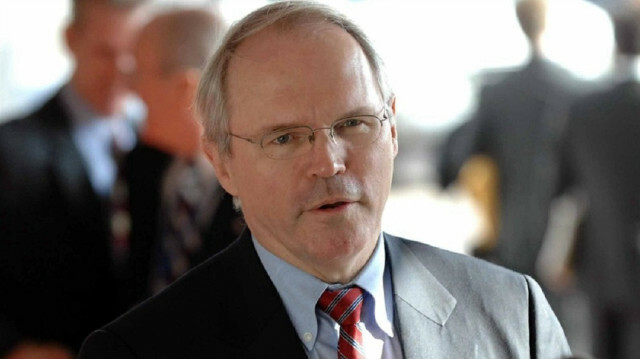
Formation of Serb Municipalities to allow conditions to return to normality, says American envoy Christopher Hill
Serbia has a right to address the NATO-led peacekeeping mission in Kosovo (KFOR) to deploy troops there, the American envoy to Belgrade said Thursday.
Christopher Hill's remarks came after Serbian President Aleksandar Vucic said Belgrade will formally address KFOR to deploy troops.
"Of course, the government of Serbia has the right to address KFOR, but this remains a political issue and therefore requires a political solution. We need to calm the situation so that members of the Serb community living in that area can have clear expectations about what their lives will look like in the future," he said.
Peace can be achieved by establishing the Community of Serb Municipalities (ZSO), according to Hill.
''The formation of the ZSO will create the conditions for a return to normality, through which peace and stability can be established in the area where these people have been living for centuries, and that is what everyone really wants,'' he said.
Serbs in northern Kosovo blocked main roads to protest the arrest of former Serb police officer Dejan Pantic on suspicion of terrorism. Pantic was part of a mass resignation of Serbs from security forces in November.
Vucic said Saturday that Belgrade will officially request NATO's peacekeepers, known as KFOR, to allow it to deploy Serbian army personnel and police in Kosovo, in accordance with a UN resolution.
UN Resolution 1244 said Serbia has the right to deploy up to 1,000 members of its security forces in Kosovo.
Vucic also urged Serbs in Kosovo to respect NATO and EU forces.
- Tensions between Serbia and Kosovo
Kosovo, predominantly inhabited by Albanians, broke from Serbia in 1999 and declared independence in 2008. But Serbia has not recognized the move and sees its former province as part of its territory.
Tensions flared last month when Kosovo attempted to require ethnic Serbs to change their vehicle license plates that date before 1999 to Pristina-issued plates. The decision led ethnic Serbs in Kosovo to withdraw from all central and local institutions.
A snap election was announced in four northern municipalities for Dec. 18 after ethnic Serb representatives resigned their posts.
But Kosovo has postponed the elections because of security concerns and the vote postponed until April.
Earlier this week, some election centers were damaged and shooting was heard in those areas, raising fears of an escalation in tensions.

